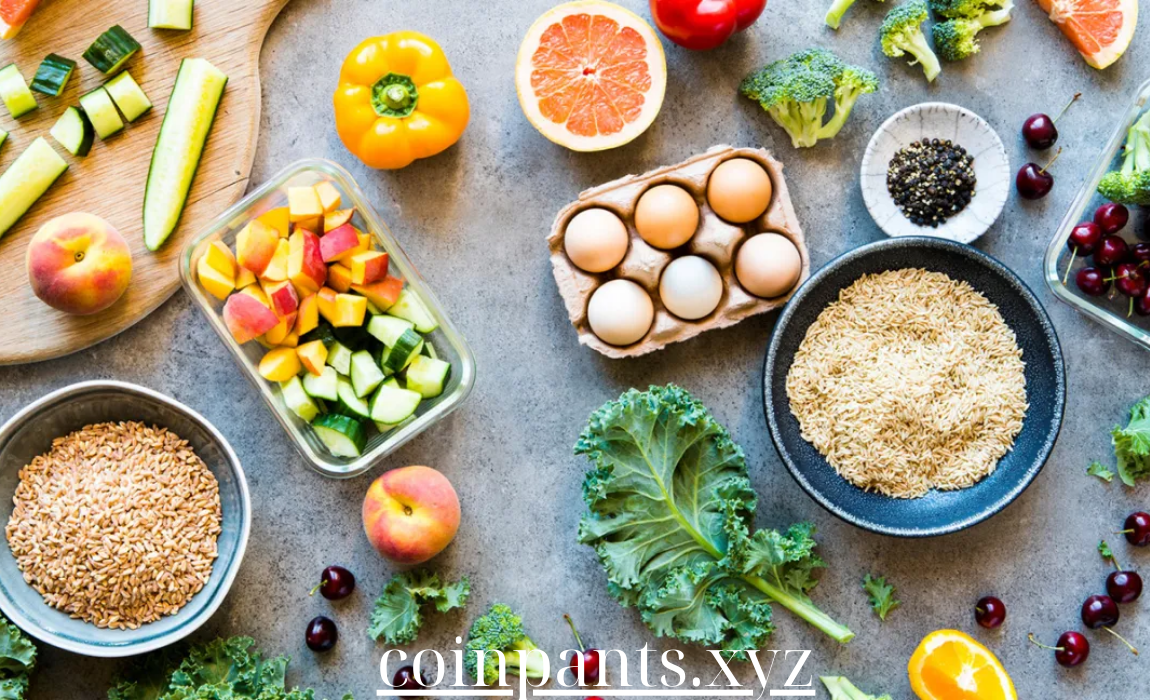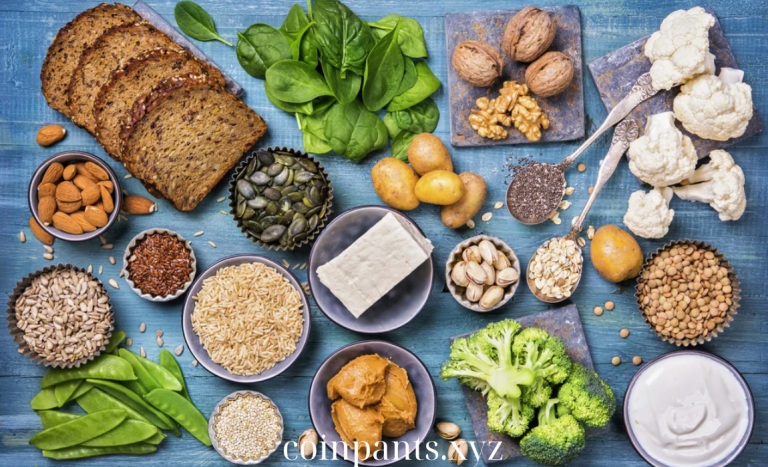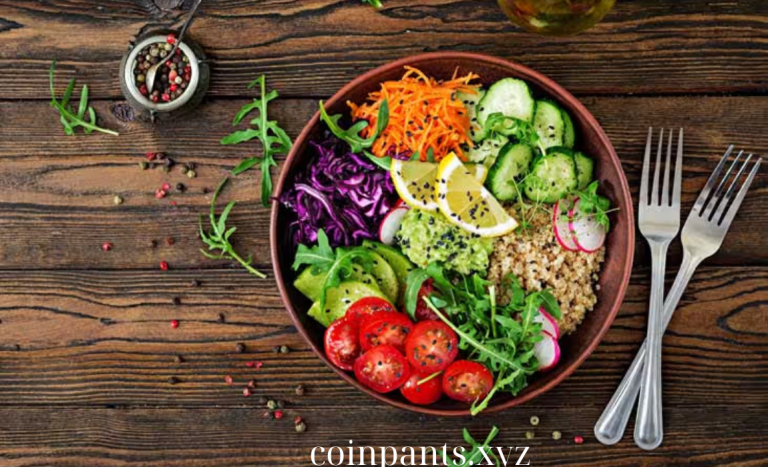
In recent years, the plant-based diet has gained immense popularity for its health benefits, environmental sustainability, and ethical considerations. Whether you’re new to plant-based eating or looking to enhance your knowledge, this comprehensive guide will walk you through everything you need to know to embrace a healthier, plant-powered lifestyle. From understanding essential nutrients to planning balanced meals, we’ll cover all aspects of plant-based nutrition.
1. Understanding Plant-Based Nutrition
A plant-based diet focuses primarily on foods derived from plants, including fruits, vegetables, whole grains, nuts, seeds, and legumes. While some individuals may choose to be completely vegan (no animal products), others adopt a more flexible plant-based approach, occasionally incorporating animal-derived ingredients like eggs or dairy. The key is to emphasize whole, minimally processed plant foods that provide essential nutrients and energy for optimal health.
Key Benefits of Plant-Based Nutrition:
- Improved Heart Health: Plant-based diets are rich in fiber, antioxidants, and healthy fats, which can reduce cholesterol levels and lower the risk of heart disease.
- Weight Management: High in fiber and low in calories, plant-based foods can help you feel full longer, making it easier to maintain a healthy weight.
- Lower Risk of Chronic Diseases: Studies show that plant-based diets are associated with a reduced risk of diabetes, hypertension, and certain cancers.
- Enhanced Digestive Health: The fiber content in plant-based foods supports digestive health by promoting regular bowel movements and nurturing beneficial gut bacteria.
- Sustainability: Reducing reliance on animal products can minimize the environmental impact of food production, benefiting the planet.
2. Essential Nutrients in a Plant-Based Diet
While plant-based diets offer numerous health benefits, it’s essential to ensure you’re getting all the necessary nutrients to support overall well-being. Let’s explore some key nutrients that require special attention and how to incorporate them into your diet.
a. Protein
One common concern about plant-based diets is getting enough protein. However, there are plenty of plant-based protein sources that can meet your needs.
- Best Plant-Based Protein Sources: Lentils, chickpeas, black beans, quinoa, tofu, tempeh, edamame, seitan, nuts, seeds, and peas.
- Tip: Combine a variety of plant-based proteins throughout the day to ensure you get all essential amino acids.
b. Iron
Iron is crucial for producing red blood cells and transporting oxygen throughout the body. While plant-based sources of iron (non-heme iron) are less easily absorbed than animal-based sources, you can still meet your iron needs with the right choices.
- Best Iron-Rich Plant Foods: Spinach, lentils, chickpeas, quinoa, tofu, pumpkin seeds, fortified cereals, and dried fruits like apricots and raisins.
- Tip: Pair iron-rich foods with vitamin C sources (like citrus fruits or bell peppers) to enhance absorption.
c. Calcium
Calcium is essential for bone health, and while dairy is a traditional source, many plant-based alternatives offer calcium as well.
- Best Plant-Based Calcium Sources: Fortified plant milks (such as almond, soy, or oat milk), fortified orange juice, leafy greens (kale, bok choy), almonds, tahini, and tofu set with calcium.
- Tip: Ensure you check labels for calcium content in fortified products and eat a variety of calcium-rich plant foods.
d. Omega-3 Fatty Acids
Omega-3 fatty acids are crucial for brain health, heart health, and reducing inflammation. While fish is a primary source, plant-based eaters can get omega-3s from certain seeds and oils.
- Best Plant-Based Omega-3 Sources: Flaxseeds, chia seeds, hemp seeds, walnuts, and algae oil supplements.
- Tip: Incorporate ground flaxseeds into smoothies, oatmeal, or baked goods for a daily boost of omega-3s.
e. Vitamin B12
Vitamin B12 is a critical nutrient for nerve function and the production of DNA and red blood cells. Since it’s found naturally in animal products, plant-based eaters need to find alternative sources.
- Best Plant-Based B12 Sources: Fortified nutritional yeast, fortified plant-based milks, fortified breakfast cereals, and B12 supplements.
- Tip: Consider taking a vitamin B12 supplement to ensure you’re meeting your daily needs, especially if you’re strictly vegan.
f. Vitamin D
Vitamin D helps the body absorb calcium and maintain healthy bones. While the sun is a natural source of vitamin D, many people don’t get enough from sunlight alone.
- Best Plant-Based Vitamin D Sources: Fortified plant milks, fortified orange juice, and mushrooms exposed to sunlight.
- Tip: A vitamin D supplement may be necessary, especially in the winter months or if you live in areas with limited sunlight.
3. Building a Balanced Plant-Based Plate
Creating well-rounded meals that include a variety of plant-based foods is essential for meeting all your nutrient needs. A balanced plant-based plate typically includes:
- Vegetables: Aim for a variety of colors to get a wide range of vitamins, minerals, and antioxidants.
- Whole Grains: Brown rice, quinoa, oats, and whole wheat provide fiber, vitamins, and sustained energy.
- Plant-Based Proteins: Legumes, tofu, tempeh, and nuts offer essential amino acids.
- Healthy Fats: Include sources like avocados, nuts, seeds, and olive oil for healthy fats that support heart health.
- Fruits: Fresh or frozen fruits provide natural sugars, fiber, and a wide range of nutrients.
Sample Balanced Plant-Based Meal:
- Breakfast: Smoothie bowl with almond milk, spinach, banana, chia seeds, and peanut butter.
- Lunch: Quinoa salad with black beans, avocado, corn, and lime dressing.
- Dinner: Stir-fried tofu with broccoli, bell peppers, and brown rice.
- Snack: Hummus with carrot sticks and whole grain crackers.
4. Planning for Success: Tips for Plant-Based Eating
To succeed on a plant-based diet, it’s important to plan ahead, be open to trying new foods, and make gradual changes that fit your lifestyle. Here are some tips to help you thrive:
- Start Slowly: If you’re transitioning to a plant-based diet, ease into it by incorporating more plant-based meals gradually.
- Meal Prep: Preparing meals in advance ensures you have nutritious options available throughout the week.
- Explore New Recipes: Try out plant-based recipes from different cuisines to keep things exciting.
- Mindful Snacking: Choose nutrient-dense snacks like nuts, fruits, or whole grain crackers with hummus.
- Read Labels: Many processed foods contain hidden animal products, so it’s important to read labels if you’re strictly plant-based.
5. Overcoming Common Challenges
Adopting a plant-based diet can come with its challenges, but with a bit of knowledge and preparation, you can overcome these hurdles.
- Cravings for Meat or Dairy: Look for plant-based alternatives like soy, almond, or coconut milk, and experiment with meat substitutes like tofu, tempeh, or seitan.
- Dining Out: Many restaurants now offer plant-based options. Don’t hesitate to ask for substitutions or customized meals.
- Nutrient Gaps: As mentioned earlier, focus on incorporating a variety of nutrient-rich foods and consider supplements for key vitamins like B12 and D.
Conclusion
Embracing a plant-based diet is a powerful way to enhance your health, protect the environment, and enjoy a diverse array of flavors. With careful planning and an understanding of essential nutrients, you can thrive on a plant-based diet while reaping the benefits of improved well-being and a more sustainable lifestyle. Whether you’re fully transitioning to a plant-based lifestyle or simply incorporating more plant-based meals into your routine, this guide will help you make informed, nourishing choices for a healthier future.






